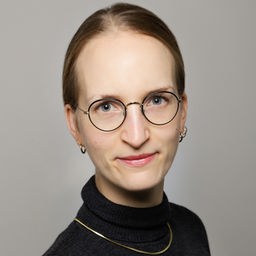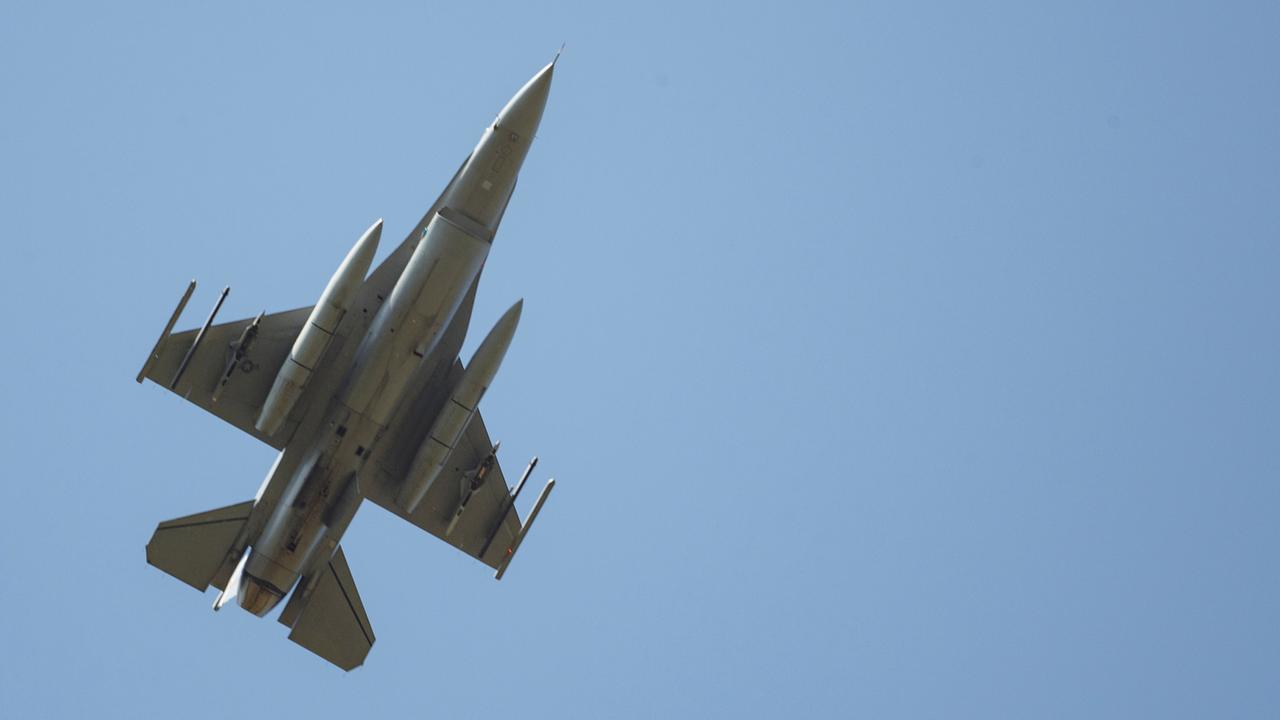interview
What would happen if Donald Trump withdrew nuclear protection from Europe after an election victory? Nuclear expert Lydia Wachs thinks little of scenarios that revolve around building a European nuclear power. She calls for a different debate.
tagesschau.de: In view of a possible election victory for Donald Trump at the end of the year, the discussion is increasing in Europe as to whether the US’s nuclear security guarantee for the NATO states will still exist under a President Trump or will be weakened – and how to react to this. Does Europe need to think more about expanding its own nuclear capabilities?
Lydia Wachs: In any case, I think it is right that we have a debate about nuclear deterrence in Europe. We haven’t dealt with this issue for a long time, and that’s what we should do in Germany and in Europe.
At this point, no one can predict whether Trump will be re-elected. And if that were to happen, the question would be whether a Trump administration would actually abandon nuclear security guarantees completely. I don’t think that would be the first step. In my view, a Trump administration would probably first have to get the Europeans to invest more in conventional armed forces. The prerequisite for giving up nuclear security guarantees for Europe would be that the USA wants to completely withdraw from Europe as a regulatory power.

To person
Lydia Wachs is doing her doctorate at the University of Stockholm on Russia’s role in the nuclear order. Previously, she worked as a research fellow at the SWP in Berlin on questions of nuclear weapons policy, particularly Russia’s nuclear strategy.
“The massive consequences are not discussed”
tagesschau.de: On the other hand, he has already flirted with it publicly. But regardless of whether you take this at face value or not, what can Europe do to make itself more independent of the US security guarantee?
Wax: In the current debate, Germany is talking about very far-reaching measures such as developing its own nuclear weapons. However, the massive consequences of these options and their small-scale implications are not discussed and perhaps even overlooked. It would make sense to first sharpen the understanding of nuclear deterrence in Germany and also in Europe – in political Berlin, generally in society and in discussions with European partners. Talks with France, for example, about greater cooperation on nuclear issues never really happened or went anywhere. That would be the first step before setting up scenarios such as your own nuclear weapons.
tagesschau.de: Would France be willing to play a stronger role in deterrence in a European context, be it within NATO or in an EU context?
Wax: This depends on which timelines we are talking about. Today France has no serious interest in playing a major role. President Emmanuel Macron emphasized in 2020 that the French nuclear arsenal also has a European dimension and suggested a dialogue about it. However, this was intended to be more general about nuclear deterrence and was not meant as an offer to put a nuclear umbrella over Europe instead of the USA.
Because of sovereignty concerns, France is still not part of NATO’s nuclear command structure and is still clearly holding back. Rather, the aim should be for other European partners to concern themselves more with the issue of nuclear deterrence, which Germany was very reluctant to do, at least until the start of Russia’s war of aggression against Ukraine.
“All options are still very far away”
tagesschau.de: I would still like to stick with the scenario of what happens if the USA withdraws from Europe as a regulatory power. What effect would that have on the European nuclear powers France and Great Britain and their partners?
Wax: Then the context is of course different, but even then it is not the most realistic scenario that France or perhaps Great Britain would be prepared to do something bigger – for example to take over extended deterrence from the USA. And then there is also the question of whether the other European states, especially the Central and Eastern European partners, would follow suit.
We are talking about different scenarios here. It could be that each state suddenly chooses its own strategy and, for example, Germany develops its own nuclear weapons. It could also be that Europe gets its act together and builds its own nuclear force. But that would require a massive step towards integration – we would then be talking about the United States of Europe. And all of these – still very distant – options would not only be extremely costly financially, but above all would also have massive political consequences.
tagesschau.de: Nevertheless, the demand that Europe or even Germany should develop its own nuclear force has been raised again and again, most recently from the ranks of the Greens.
Wax: The debate continues over and over again, but of course Trump’s possible re-election raises concerns. What receives little attention in this debate, however, is the question of what the European states will then have to do in the conventional area. Because the USA is currently not only guaranteeing nuclear deterrence, but above all also conventional defense and deterrence. Without an expansion of conventional options, nuclear deterrence would be of little use. And that is largely ignored in the debate.
“France would have to massively expand its arsenal”
tagesschau.de: Would France even have the ability to replace the USA?
Wax: France has completely different capabilities than the USA. France not only has a much smaller arsenal of nuclear weapons, but also has no real gradation in it, i.e. no “smaller” tactical nuclear weapons. This means that Russia could only threaten to attack Russian cities with intercontinental ballistic missiles in the event of a conventional attack, and that is extremely unbelievable – both within the alliance and towards Russia. France would therefore have to massively expand its arsenal. And that would in any case involve enormous costs, including for the allies, and it would take a considerable amount of time. And even then, the credibility of such a French protective umbrella would still depend on the balance of interests in Paris.
tagesschau.de: Why would that be unbelievable?
Wax: Extended deterrence must be made credible. Two factors play a role here. It’s not just about the military capabilities, as just mentioned, about the strategy of the guaranteeing state. It is also about his political will to protect allies and, in extreme cases, risk his own security. In addition to its nuclear capabilities, the credibility of the United States in terms of extended nuclear deterrence has always been based on the fact that Europe has played a very important role in its global strategy. France, on the other hand, is a European power, but has always signaled in recent decades that it weighs its interests somewhat differently. And France’s Russia policy in particular has raised doubts among Central and Eastern Europeans as to whether France would actually put national interests behind pan-European goals in case of doubt.
“Germany would isolate itself completely”
tagesschau.de: Why is the idea of Germany building up its own nuclear capabilities absurd?
Wax: Different questions arise here, namely legal, political and military. In military terms, this would involve massive investments. Legally, it would be incompatible with the current international agreements Germany has entered into – both the 2+4 treaties and the Nuclear Non-Proliferation Treaty. And politically, Germany would isolate itself completely, its alliances would be difficult to maintain – it would most likely become a pariah, similar to North Korea. Germany would give up everything that is important to Germany. And of course Russia would do everything in its power to prevent a German nuclear program.
tagesschau.de: What does it mean to develop a better understanding of nuclear deterrence, as you suggested at the beginning?
Wax: It means that you have to deal intensively with questions of nuclear strategy. How does deterrence work? What does credibility mean in this context? What role can arms control play and where does it reach its limits? These are all questions that come up again and again in such public debates. A better understanding of this needs to be developed both in political Berlin and among the population.
tagesschau.de: And what happens at the end of such an activity?
Wax: In the end, Berlin not only leads debates, but also really thinks through scenarios and options for European deterrence and contributes its own know-how to discussions on nuclear strategy in NATO and with partners – and a better understanding of this among the population creates what options for action there are, but also what the consequences and difficulties would be.
The interview was conducted by Eckart Aretz, tagesschau.de




